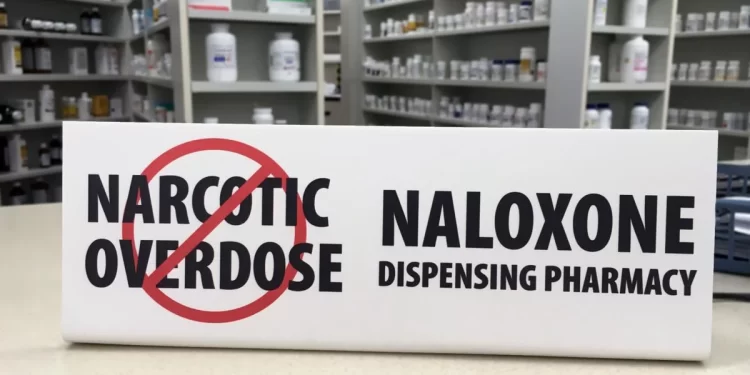By Anthony Hennen | The Center Square
(The Center Square) – As drug overdose deaths continue to rise in Pennsylvania, state officials have expanded the public’s ability to obtain naloxone to reverse overdoses.
The commonwealth started a program to make naloxone available to the public through pharmacies in 2020, as The Center Square previously reported, and now the Department of Health announced its expansion.
“With this expansion of naloxone availability, each of us has the opportunity to be a first responder to a fellow Pennsylvanian amid the ongoing opioid crisis,” Gov. Tom Wolf said in a release. “When an overdose is reversed thanks to naloxone, and someone’s life is saved, we are giving them another chance at life. This tool is free for Pennsylvanians, and it works. With it, we can help survivors down the road to recovery and treatment.”
The expansion includes the cheapest form of naloxone, a non-prefilled syringe with two doses of liquid naloxone. To use it, the department offers a training video and more information at Train PA.
The program does not put the cost on taxpayers. Instead, it’s up to those who want naloxone. The standing order that residents present allows them to purchase naloxone without a prescription, with the cost depending on the purchaser’s insurance or copay required.
The average out-of-pocket cost for naloxone is about $31, Department of Health Deputy Press Secretary Maggi Barton said.
The uptake has been notable.
“Since the start of the program in 2020, almost 36,000 doses of naloxone have been provided to people in all 67 counties,” Barton said.
It’s hard to say, however, how many of those naloxone doses have been used in a life-threatening situation. For now, the use of naloxone is known only when EMS professionals administer the drug, which they are required to report.
From 2019-21, EMS professionals have administered naloxone almost 41,000 times, Barton noted.
While not all states have expanded the availability of naloxone, the U.S. Surgeon General has encouraged policies like Pennsylvania’s, encouraging the public to “get trained to administer naloxone in the case of a suspected emergency.”




